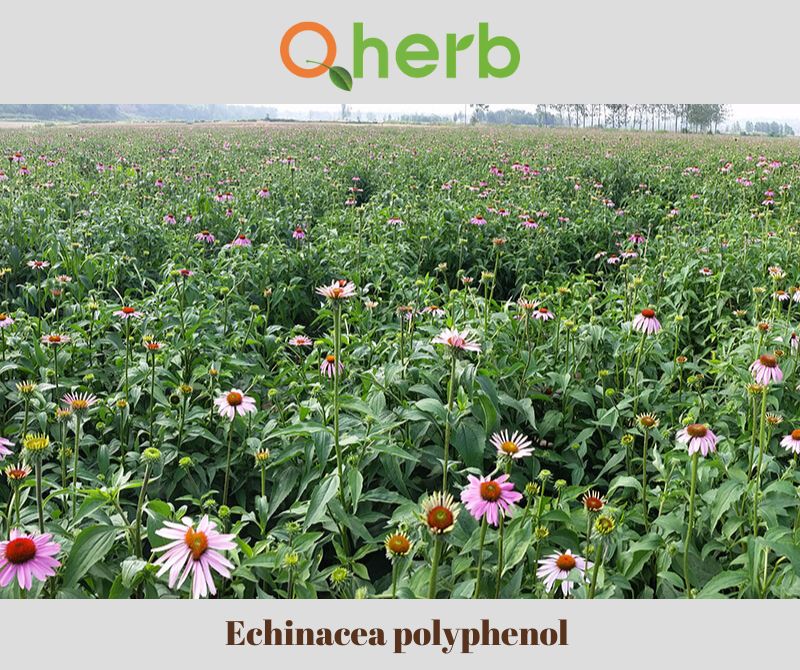with antiviral and immune-stimulant properties
Echinacea, already used by American Indians, is one of the protagonists of modern herbal medicine: it is very useful against inflammation, colds and skin abrasions
Perennial plant of the family of the Compositae, the Echinacea polyphenol, is native to the temperate regions of North America. There are many different species, but those most used in herbal medicine are Echinacea purpurae, Echinacea pallida (which have the approval of use in the medical field) and Echinacea Angustifolia (whose use is only proven in the herbal field). Known for centuries, Echinacea was already used for therapeutic purposes by the South American Dakota Indians.
The magical plant par excellence, the Echinacea, was used by the shamans of the North American tribes, as a remedy for numerous problems. In the form of compresses to heal wounds and treat snake and scorpion bites, but also as a decoction to heal gonorrhea and syphilis. In modern times, the pharmacological properties empirically attributed by the North American tribes have also been confirmed by clinical studies.
A phytocomplex with synergistic action
Much used in herbal medicine, Echinacea uses everything: roots, rhizome and aerial parts (including leaves). Its therapeutic activity is varied. It protects from viruses and bacteria and has an immunostimulant effect, as well as being an excellent antitumor and having anti-inflammatory properties.
The active ingredients contained in Echinacea are different: flavonoids, polysaccharides, glycoproteins, polyphenols, alkylamides, polyenes, caffeic acid derivatives, and essential oil. Its pharmacological properties are attributable to a synergistic action of the various molecules contained in it, which have a specific action amplified by the others.
Properties and benefits
The antiviral action of Echinacea is particularly useful for treating flu states and, for preventive purposes, preventing the respiratory system from cooling diseases: colds, fever, sore throat, tonsillitis, cough, bronchitis, etc. The Echinacea polyphenol is also very useful in treating urinary tract infections, such as cystitis. Furthermore, thanks to a cortisone-like effect (which stimulates the action of adrenal corticosteroids), Echinacea has anti-inflammatory and anti-arthritic properties.
Its anti-carcinogenic properties have been confirmed by scientific research. Where before the shamans attributed to Echinacea the ability to hunt the "evil" from the body (or any "entity" capable of killing a person), in our days these "demons" turned out to be the tumor. In this case, the modern physician is inspired by ancient cultures. Furthermore, Echinacea is a powerful antioxidant.
Also for outdoor use
In addition to internal use, taken for drops, capsules with dry extracts or in the form of teas, Echinacea can be used for external use, with compresses, to solve some simple problems. It can be used as an anti-wrinkle and against stretch marks, or to purify the skin. Echinacea is also excellent as a tonic to facilitate blood circulation, relieving varicose veins and promoting microcirculation, in the treatment of swollen and tired legs. Applied locally, moreover, as the American Indians used, it is useful for treating wounds, burns, acne, and insect bites. In the form of a mother tincture directly on the affected part, it has a disinfecting and healing action, as well as antifungal.
Posology and formulation
On the market Echinacea can be found in various forms: dry extract powder from the root (usable in the preparation of teas or the form of capsules), mother tincture, alcoholic extracts and juice of aerial parts (in drops to be diluted in water). Posology and method of administration are indicated on the packaging or in the leaflets. For a timely and effective use, however, it is always good to deal with a doctor or a naturopath, phytotherapy experts, or at least contact an experienced herbalist. A specialist who knows well the phyto-complex and therefore knows how to provide detailed information, both in terms of benefits and dosage and especially for the contraindications of the case.
Contraindications
Avoid consumption of Echinacea polyphenol in case of allergic reactions and known hypersensitivity or appearance of erythema. In pregnancy and lactation, it is best not to take Echinacea as a precautionary measure. There is an absolute ban on using Echinacea in the presence of autoimmune diseases (leukemia, multiple sclerosis, HIV).
Its high power to strengthen and stimulate the immune system, in these cases is counterproductive, given that these diseases are themselves determined by hyperactivity of the immune system. Echinacea would amplify its symptoms. Moreover, it is good to know that Echinacea can inhibit the action of some drugs (antiviral, paracetamol, econazole, corticosteroids, immunosuppressants, anticancer drugs, etc.)



 Healthier Future
Healthier Future